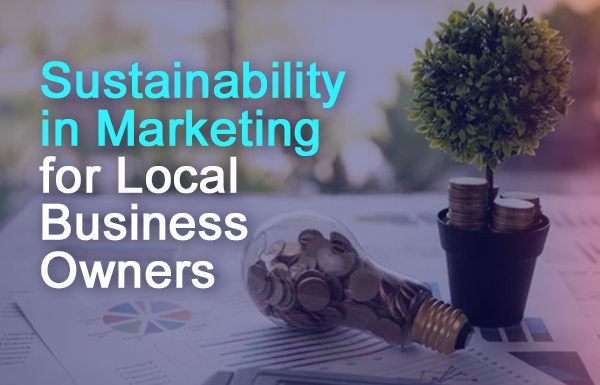In an era where consumer choices are increasingly influenced by eco-conscious considerations, local businesses find themselves at the crossroads of innovation and sustainability. But how can they navigate this green evolution in the realm of marketing? Delve into our comprehensive guide, which sheds light on the confluence of digital transformation and sustainable practices, offering actionable insights for businesses eager to make a lasting impact in their communities and beyond. Welcome to the future of marketing—a landscape where every choice echoes in the harmony of economic growth and environmental stewardship.
1. Embracing the Digital Transformation in Sustainable Marketing
In today’s dynamic digital landscape, local businesses have a golden opportunity to incorporate the principles of sustainability in their marketing strategies. By doing so, businesses can appeal to an ever-growing consumer base that values eco-friendly initiatives.
Key takeaway: Combining digital strategies with sustainability leads to a powerful marketing approach.
2. Catering to the Conscious Consumer
More than ever, consumers are basing their purchasing decisions on a company’s ethical stance, sustainability commitments, and corporate responsibility. Even local businesses in niche markets must acknowledge and adapt to this shift to remain relevant.
Key takeaway: Aligning with the values of today’s conscious consumer fosters brand loyalty and can significantly boost revenue.
3. Sustainability: Beyond a Buzzword
For sustainability to be truly impactful, it must be ingrained in a brand’s ethos and not just used as a marketing catchphrase. This means:
- Product Design: Prioritizing eco-friendly materials and sustainable production methods.
- Supply Chain Management: Collaborating with suppliers who are equally committed to green initiatives.
- Waste Management: Minimizing waste, particularly single-use plastics, in both operations and packaging.
Key takeaway: A holistic approach to sustainability can significantly elevate a brand’s image and appeal.
4. Technology’s Role in Sustainable Marketing
The digital era offers an array of tools that can boost a business’s sustainability efforts:
- Data Analytics: Enables businesses to measure the impact of their sustainable campaigns and refine strategies for better outcomes.
- Augmented Reality (AR): Allows for virtual product demos, thereby reducing the need for physical samples.
- Blockchain: Offers unparalleled transparency in the supply chain, ensuring ethical sourcing and production.
Key takeaway: Harnessing modern technology can enhance and validate sustainable marketing endeavors.
5. Navigating Challenges in Sustainable Marketing
Transitioning to sustainable marketing is essential, but it’s not without its hurdles:
- Greenwashing Allegations: Businesses must be transparent in all sustainability claims to avoid accusations of deceit.
- Operational Costs: It’s crucial to find cost-effective sustainable alternatives, considering both immediate costs and long-term return on investment.
- Consumer Doubt: Regularly showcasing genuine sustainability efforts can mitigate skepticism.
Key takeaway: Recognizing potential challenges and addressing them head-on ensures a smooth journey in sustainable marketing.
6. Conclusion: The Sustainable Marketing Horizon
For local businesses, the fusion of digital transformation and sustainability heralds a promising future. Those that genuinely integrate sustainable practices, utilize technology effectively, and stay informed will undoubtedly find success in the evolving marketplace.
Key takeaway: Sustainable marketing is not a fleeting trend but the way forward, ensuring both business growth and a healthier planet.
As we journey through the nexus of sustainability and marketing, it’s evident that local businesses stand to gain not just economically, but also in establishing a legacy of positive environmental impact. Embracing sustainable marketing is no longer optional; it’s an imperative for brands aiming for longevity and relevance in a rapidly evolving marketplace. As we conclude, here are three actionable steps to set your business on the path to sustainable marketing success:
- Audit and Reflect: Begin with a thorough assessment of your current marketing practices. Identify areas that can be made more sustainable, from the materials used in promotional campaigns to the digital platforms employed for outreach.
- Engage and Educate: Foster a dialogue with your target audience. Understand their sustainability expectations and educate them about your green initiatives. This two-way communication will not only build trust but also guide future marketing endeavors.
- Innovate and Adapt: Sustainability in marketing is a dynamic field. Stay updated with the latest green trends, technologies, and strategies. Continuous innovation and adaptability will ensure your brand remains at the forefront of sustainable marketing practices.
In essence, the future beckons local businesses to not just market products and services, but also values and vision. By intertwining sustainability with your marketing blueprint, you are poised to create a legacy that resonates for generations to come.

